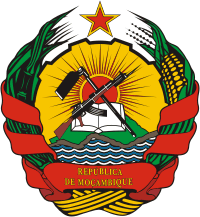 Space
Program of Mozambique
Space
Program of Mozambique
------Mozsambique, Africa's Space Agency------
|
Level = 0 Development: Very Low
What has been going on in Mocambique?
What kind of space power do they have?
Does Mozambique have space weapons?
What are they planning over there? |
|
Population: 20,000,000 / Language: Portuguese / GDP: $1300 / Cities: Maputo
Mozambique's Space Agency Mozambique is one of the world's poorest countries, with one of the least developed space programs in the world. Not only does it certainly not have an agency, but also no infrastructure in which one would arise. Its has no scientific university and the government has no ministry devoted to science of this type. Mozambique has no history of being part of any organization dealing with space, nor has any launch capability. Mozambique lacks the industrial base, the educational base and the political foundation for a process like this to occur within it. It has no functioning university with an astrophysics or astronautics program, as University of Mozambique (Eduarde Mondlane) does not offer a degree. Industry is negligable. Mozambique operates no satellites and, not having a presence, has no space power. The government of Mozambique in Maputo has no plans for attempting to further any ambition in space development or research. |
|
TODAY AND INTO THE FUTURE
Nothing Planned
|